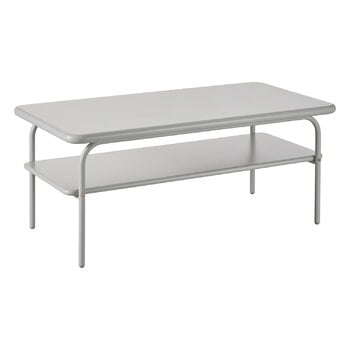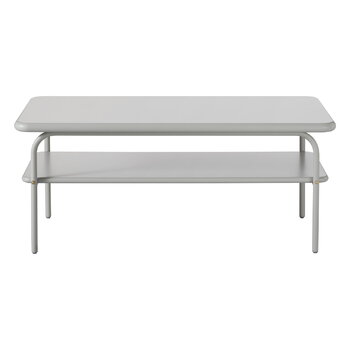Maze's sleek Anyday coffee table is a charming companion for all kinds of sofas and sofa groups. Designed by Louise Hederström, the simple look of the coffee table is enhanced by brass details and elegant metal legs. The Anyday coffee table follows the same design language as Maze’s Anyplace side table and Anyone stool, and by combining these three it’s easy to create a cohesive, minimalist look for the living room décor. The Anyday coffee table is part of Maze's Pieces furniture collection, and it is made in Sweden.
Anyday coffee table, 50 x 100 cm, grey
Maze
Description
Maze's sleek Anyday coffee table is a charming companion for all kinds of sofas and sofa groups. Designed by Louise Hederström, the simple look of the coffee table is enhanced by brass details and elegant metal legs. The Anyday coffee table follows the same design language as Maze’s Anyplace side table and Anyone stool, and by combining these three it’s easy to create a cohesive, minimalist look for the living room décor. The Anyday coffee table is part of Maze's Pieces furniture collection, and it is made in Sweden.
Product details (7)
- Colour
- Light grey
- Length
- 100 cm
- Width
- 50 cm
- Height
- 43 cm
- Material
- Powder-coated metal with lacquered MDF
- Weight
- 24 kg
- Notes
- Delivered assembled.
- Product ID
Designer
The Swedish designer Louise Hederström lives and works in Malmö, Sweden. She has studied at Beckmans in Stockholm as well as at the University of Lund. She has managed her own studio, Charming Unit Design Studio, for several year. She has also worked at IKEA and her work has been shown in many international exhibitions. Hederström gets inspired by animals, colors, decorations and last but not least by Elvis Presley.
View all productsReviews (0)
Sustainability
The Product Sustainability Framework, our criteria of sustainable design, helps you find the most sustainable products in our selection. Read below which sustainability criteria this product has met.
Working conditions & labour 6/9
-
Equal opportunities for all employees
-
Commitment to UN Global Compact, fair compensation for all employees
-
Corporate responsibility requirements defined and communicated for suppliers
-
Systematic work for improved inclusion and well-being in the workplace
-
Transparent supply chain
-
Suppliers' compliance to a code of conduct ensured
Eco-friendly production 7/9
-
Fair and resource-wise water-use in production
-
No incineration or landfilling of returned items
-
No use of endangered species as materials
-
No direct environmental emissions or waste (excl. GHGs) from production
-
The sustainability of direct suppliers' production is addressed and monitored
-
Material-efficient and ecological packaging
-
No potentially harmful chemicals used in own production
Climate impact 3/8
-
Company's direct greenhouse gas emissions identified and commitment to reduction
-
Product's carbon impact identified and commitment to reduction
-
Guidance on energy- and eco-efficient use of the product
Sustainable materials 5/6
-
Sustainable and long-lasting material choices
-
No harmful or hazardous substances
-
Responsible raw material sourcing and production
-
Materials suited for circularity: monomaterials, recyclable finishings, renewable or recycled contents etc.
-
Ecological materials: natural, biodegradable, recyclable or recycled contents
Circular design 4/5
-
High aesthetic quality promoting long-term use of the product
-
Technically durable product design and material choices
-
Design for enduring life-long quality
-
Design and support for product maintenance, repair and upgradability








